The Unbroken Horizon Introduction
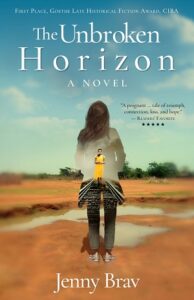 What if the key to your wholeness lay in your wounding?
What if the key to your wholeness lay in your wounding?
2011: Sarah Baum is a white humanitarian nurse who’s worked in conflict zones for years. When recurrent nightmares of being a scared Black girl hiding in the forest cause her to make a near-fatal mistake, she’s faced with her biggest challenge yet: how to heal from her past. And who is the girl in her dreams?
1914: Fourteen-year-old Maggie Burke flees the land where her family works as sharecroppers after witnessing the lynching of her brother and father. She eventually finds her way to New York and later Washington, D.C., where her personal demons finally catch up with her. Will she have to give up everything she thought she wanted to follow the wild, poetic voice wishing to emerge through her?
Alternating between Sarah’s deep dive into her childhood and ancestral wounds, and Maggie’s journey from survival to forging her own path, The Unbroken Horizon explores the ways humans survive, heal, and even thrive in the face of individual and collective trauma.
© Jenny Brav
The Unbroken Horizon Awards

Reader Views Literary Awards – 2023 – The Women in Publishing Summit Award for Best Female Debut Author
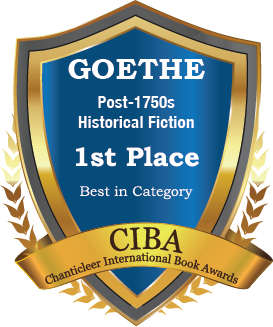
First Place Winner, Late Historical Fiction, Chanticleer International Book Awards

First Place in Dual Timeline, Second Place in Multicultural Fiction, Firebird Awards
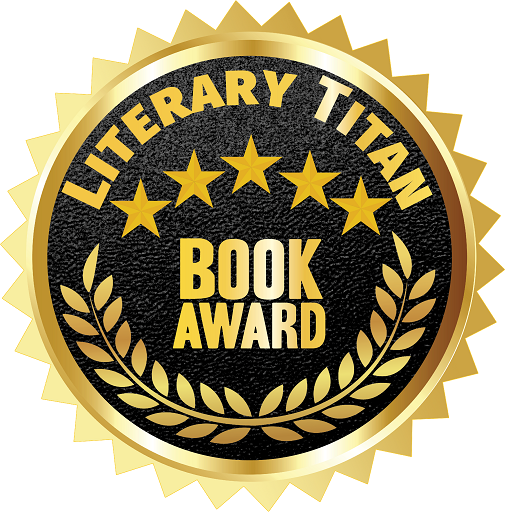
Gold Award, September 2023, Literary Titan
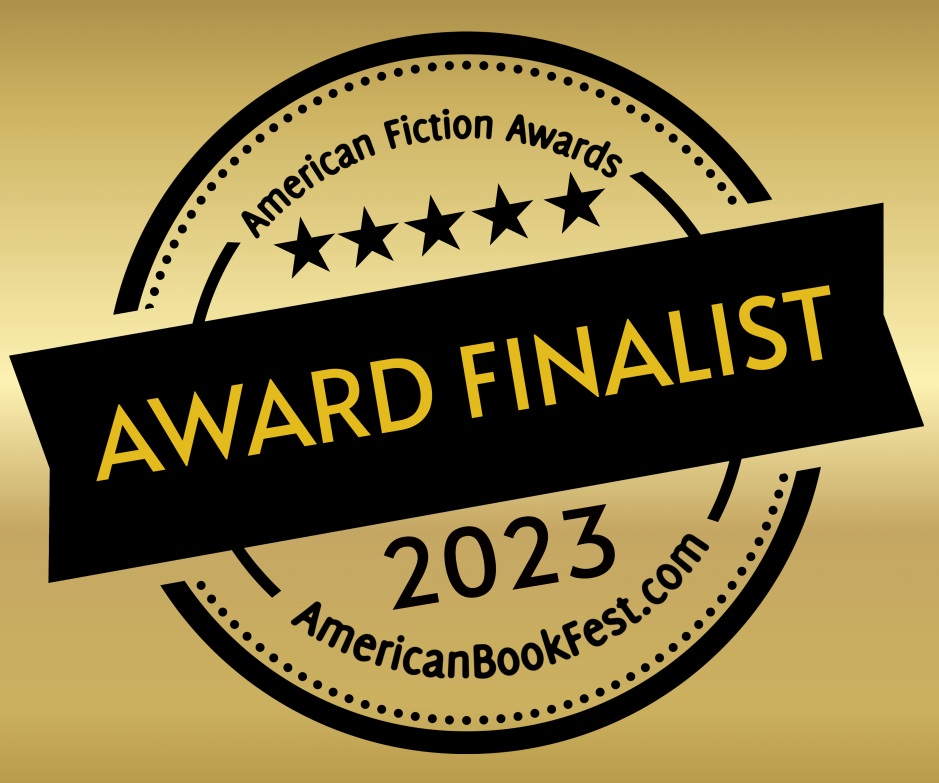
American Fiction Awards, 2023, Finalist: Cross-Genre
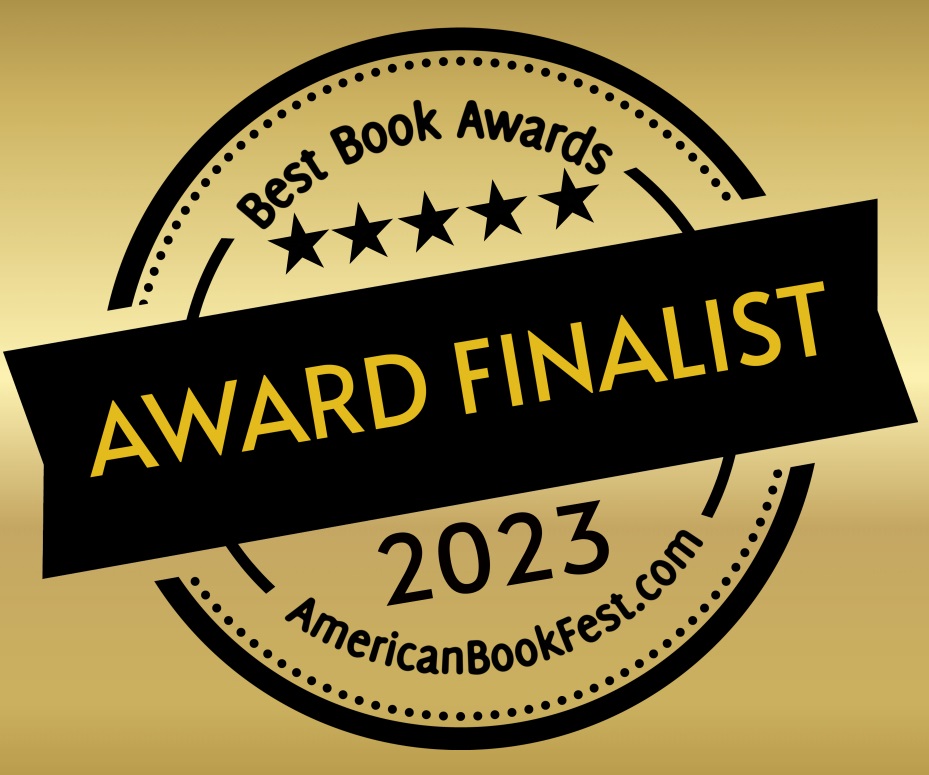
Best Book Awards (BBA), 2023, Finalist: Cross-Genre and Fiction- Inspirational

The American Writing Awards, 2023, Winner: Multicultural Category

The Royal Dragonfly Book Awards, 2023. First Place: New Author (Fiction).

Maincrest Media Book Awards, 2023. Winner: Women’s Fiction category.
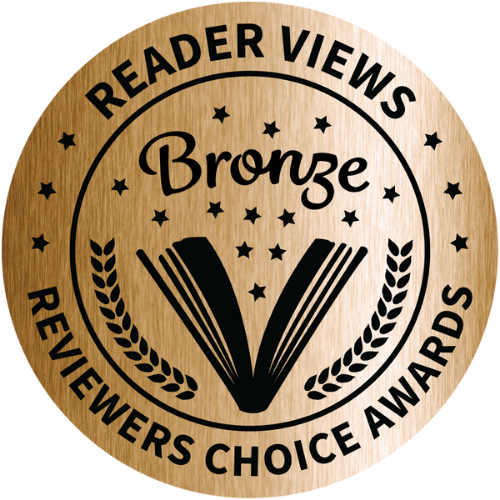
Reader Views Literary Awards – 2023 – Bronze Award – Historical Fiction

Reader Views Literary Awards – 2023 – Global Award Winner (Africa)
The Unbroken Horizon Early Praise
“With an elegant and sure hand, Brav takes us on a journey of loss and crippling trauma that ultimately weaves itself into a sense of agency and determination. Brav deals authentically with the concepts of pain and bereavement in a way that resonates and haunts the reader long after the book is finished. Both the sorrow and the healing remind us that we are not alone. And though pain is unavoidable, there is a path to healing …The Unbroken Horizon uncovers a thread that connects us all as humans, and that in itself makes it universally a worthwhile read.” —Mack Little, award-winning author of Daughter of Hades (you can see the full review here)
“The Unbroken Horizon is a must-read for fans of historical fiction. Jenny Brav’s masterful storytelling and unforgettable characters will leave a lasting impact on readers’ hearts and minds.” —Maria Yinks, L.A. Book Review ★★★★★
“I wholeheartedly recommend The Unbroken Horizon to anyone who relishes stories infused with historical elements or narratives that deftly intertwine parallel characters. Jenny Brav has masterfully crafted a captivating tale that enlightens readers on various historical and social perspectives while simultaneously offering a richly layered reading experience.” —Literary Titan ★★★★★
“A poignant and moving tale of triumph, connection, loss, and hope that readers of accomplished dramatic works are sure to adore.” —Readers’ Favorite ★★★★★
“In The Unbroken Horizon, Jenny Brav has flawlessly woven the present and past together inthis thought-provoking book about inner healing.” —Reader Views ★★★★★
“Brav’s is a unique style and voice, one that can grip the reader, draw them in, and hold them even after the last page” – Independent Book Review
“Through powerfully evoking both the past and the present, Brav presents a poignant and atmospheric portrayal of two lives touched by great tragedy and awe-inspiring triumph. An emotional and sometimes shocking story that combines finely crafted fiction and carefully researched facts which render it both entertaining and informative.” —Erin Britton, San Francisco Book Review
“The Unbroken Horizon is a winning story that ideally also will be chosen for book clubs interested in vivid literature that fully embraces emotional connections and processes of not just survival, but thriving against all odds and perceptions about what life is and should be” —Midwest Book Review
For more reviews, check out my Goodreads page here.
You can purchase on Amazon (Hardcover + Kindle here or Paperback + Kindle here) and Barnes and Noble.
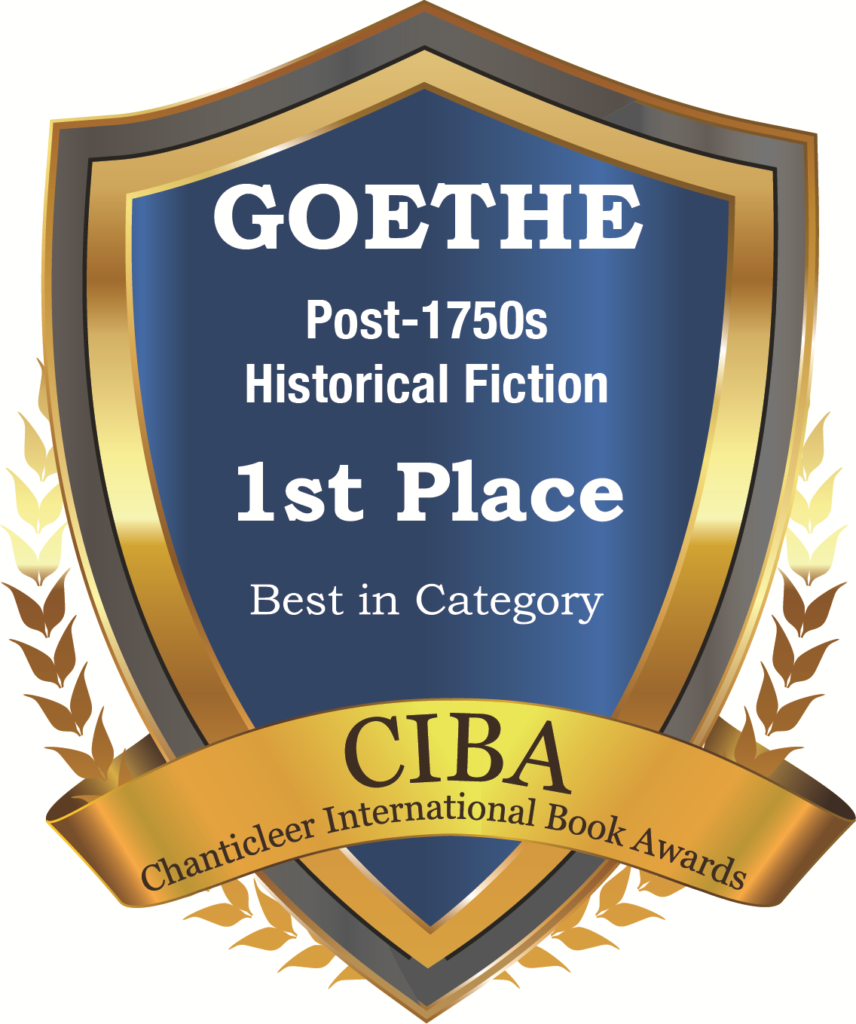
Praise for The Unbroken Horizon, First Place Winner of the Goethe Award for Historical Fiction, CIBA:
“The Unbroken Horizon is a must-read for fans of historical fiction. Jenny Brav’s masterful storytelling and unforgettable characters will leave a lasting impact on readers’ hearts and minds.” —Maria Yinks, L.A. Book Review ★★★★★
“I wholeheartedly recommend The Unbroken Horizon to anyone who relishes stories infused with historical elements or narratives that deftly intertwine parallel characters. Jenny Brav has masterfully crafted a captivating tale that enlightens readers on various historical and social perspectives while simultaneously offering a richly layered reading experience.” —Literary Titan ★★★★★
“A poignant and moving tale of triumph, connection, loss, and hope that readers of accomplished dramatic works are sure to adore.” —Readers’ Favorite ★★★★★
“In The Unbroken Horizon, Jenny Brav has flawlessly woven the present and past together inthis thought-provoking book about inner healing.” —Reader Views ★★★★★
“Brav’s is a unique style and voice, one that can grip the reader, draw them in, and hold them even after the last page” – Independent Book Review
“Through powerfully evoking both the past and the present, Brav presents a poignant and atmospheric portrayal of two lives touched by great tragedy and awe-inspiring triumph. An emotional and sometimes shocking story that combines finely crafted fiction and carefully researched facts which render it both entertaining and informative.” —Erin Britton, San Francisco Book Review
“The Unbroken Horizon is a winning story that ideally also will be chosen for book clubs interested in vivid literature that fully embraces emotional connections and processes of not just survival, but thriving against all odds and perceptions about what life is and should be” —Midwest Book Review

What some advance readers are saying:
“The tone of this book is that of empathy and kindness which hopefully will inspire its readers to listen to and value what those around them are saying. In a world that is increasingly shrill Jenny Brav’s soothing and hopeful book stands out.” —Sharon C.
“It’s the beauty of the characters, of the language, of the wonderful poems, the compassion, and hope that makes it so valuable.” —Kathrin
“Gorgeous prose in an outstanding novel! Sarah and Maggie, two women, so different in their circumstances but connected through grief, loss, doubt, failures, self-discovery, and something unexpected. I highly recommend the book!” —Mirai
“This book left me with a “book hangover.” I enjoyed it and hated to stop reading. Characters were well-developed and easy to follow on their journeys in different timelines. The ending tied the two characters together very nicely in a way I didn’t expect. I would definitely recommend this book and hope to read more from this author.”—Julie
“It is captivating, very well-conceived, and wrought. The characters read and feel real. Modern-day Sarah is vulnerable, and relatable. Strong Maggie from the past is resilient and focused. They unfold separately, then begin merging in unique and Soulful ways. The interspersed poetry is also unique, written with the same heart, depth, and skill as the rest of the story, fitting hand-in-glove. Though fiction, it feels like well-written fact, and though prose, it reads like a poetic mystery. I thoroughly enjoyed it,” —Rory
“The main two characters are strong and compelling, and easy to care about. The writing is great; each character having their own distinct voice. As their stories develop and their paths become intertwined I found it increasingly unputdownable. Behind the plot, and the reader really is curious to find out what happens with everyone – there is the theme of healing, of uncovering the true self, and ultimately of finding freedom.” —Mitchell
“I loved it!! I couldn’t put it down. It is extremely well-written, engaging, powerful, and thoughtful…reminds me a bit of Marc Levy’s books but The Unbroken Horizon is even more compelling. I can’t stop thinking about the characters and their complicated lives and challenges. The characters seemed so real to me. The author incorporates events in American history into the story brilliantly. What a pleasure to read!!!” —Sharon H
“THE UNBROKEN HORIZON is in the world but not of the world. From the very first line, Brav’s voice shimmers. From Sudan to Berkeley to the Harlem Renaissance to arcane realms of the human psyche, she transcends time and space. All the while, she anchors us in well-researched historical settings and relatable experiences. Her characters’ journeys, while vast and mystic, are inevitable, prompting us to weigh the complexity of relationships and also consider the inexplicable.” —Jesse
“Stories about people and the full range of the human experience are my favorite. Add in a dual timeline (that’s easy to follow), a hint of wanderlust, and a historical fiction twist, and I’m all in. The Unbroken Horizon perfectly satisfied those cravings for me. The storyline explores trauma and healing in a way that feels deeply moving, and ultimately, inspirational. I spent just as much time reflecting as I did reading, and I savored the emotion of each chapter.” —Hannah
“The story draws you in from the first page with its hook and emotional depth. It is a great read, and the dual timeline makes for a natural cliffhanger at the end of each chapter. The prose is poetic in its own right, with descriptions that transport you inside the characters. As the two characters’ timelines converge, it is heartening to see them triumph over their trauma in the end.” —Dan

The Unbroken Horizon Excerpt
Chapter 1: Sarah—South Sudan, April 2011
I woke to a pounding down the sides of my canvas tent, causing its foundation to tremble and shake all around me. The first thought in my sleep-addled, half-Californian brain was, “Earthquake!”
When my mind finally caught up with my pounding heart and I remembered where I was, recognition pushed my thin lips open in a rare smile of elation.
Rain.
After five months of relentless heat and dust. So much dust, everywhere. It clung to our patients like plastic wrap. They arrived with chapped skin and lips, as parched as the land around them. At night, no amount of brushing off and shaking of sheets could eliminate the small amount of grit that inevitably coated my bed. Dust caked the insides of my laptop until one day it just stopped working, and Okot, my nurse-friend Hiba’s husband and the compound’s wizard logistician, had to rescue it from the dead with his magical touch.
I heard peals of joyful laughter breaking through the thunderous sound of the rain. I put on a thin bathrobe over my flimsy nightdress (most nights it was so hot I wanted to sleep naked), and lifted the side of my tent to see Mariol and two of his sisters dancing and splashing in the rapidly forming mud puddles.
The nurse in me cringed—knowing all too intimately that mud is host to a cesspool of disease-carrying bacteria—and wanted to shout at them to go home. A dormant child part of me longed to join in. To be that carefree.
In that moment, I did neither, only tied the flap to the side of the tent, and dragged my wicker chair to the entrance so I could enjoy their frolicking and still be somewhat sheltered. The wind was blowing the other way so thankfully very little rain was entering the tent.
Mariol grabbed the younger of his two sisters by the wrists and started twirling her. She giggled with glee as her legs flapped like flags in the wind. He threw his head back and howled at the rain as though he were a wolf serenading the moon. His dark skin glistened, and his soaked red shorts clung to his thin frame.
I felt my heart soften, as it always did around Mariol, and the habitual bracing in my stomach relaxed a little. I closed my eyes, remembering the first time I met him, six months before. The small, matchbook plane that had taken me on a cramped and bumpy ride from Juba had just spit me out onto the tarmac. I was tired and crabby from thirty-six sleepless hours of travel. As I teetered unsteadily on my legs, Mariol came up to me and held his hand out, giggling at his own formality, I guessed.
He tried to keep a straight face as he said in clipped but proper English, “My name’s Mariol. Welcome to Sudan.” I shook his hand and smiled.
“So pleased to meet you, Mariol,” I said, before spotting a sign behind him that had my name, Sarah Baum, written in large, block letters.
After that day, Mariol and I became the unlikeliest of friends, thanks to his persistence and his unflappable nature.
He and his family lived very close to the plane landing strip (and hence to the bush hospital where I worked, since they were 600 feet apart). His father, Chol, came from a long line of Dinka cattle herders who’d lived on that land for generations, originally drawn to the river that ran through the area.
When the bush hospital had set up camp five years earlier, Chol had taken it in stride. In fact, thanks to his father, then four-year old Mariol was among the therapeutic feeding center’s first patients, and after that the boy became a regular fixture on the compound. He learned English from the various international workers who came and went, and because of that his accent and expressions were a motley blend of different cultures.
Mariol’s mother, Aluel, had had a harder time adjusting to the planes and the comings and goings of the staff. Mariol said her family came from a village ten hours away, and he knew she missed them as well as the relative quiet there. They went back to visit as often as they could.
Soon after my arrival, Mariol discovered my habit of an early morning run, and often followed me part of the way, mimicking my short, clopped strides. Although laughing at myself was never my forte, I found that I missed him on days he didn’t show up.
Over time, my normally steel-clad defense mechanisms eroded and I started seeking out his company on my days off almost as often as he did mine. I learned to identify each of his family’s six cattle by sight—no mean feat for a city girl. I sensed that I needed the joy he brought to my life much more than he needed the entertainment and novelty I brought to his.
Small but strong fingers wrapped around mine, pulling me out of my reverie, and out of my chair. “Sarah, dance,” Mariol instructed, pumping my arms up and down, as though trying to infuse joy and life into my stiff limbs. “Have fun! You need to get more loose!”
I laughed, thinking I could take that many different ways. But it wasn’t the first time I’d been encouraged to loosen up. While others’ observations often felt like judgments and only served to further activate my bristliness, Mariol’s unbridled enthusiasm was contagious.
In many ways, he was my alter-ego. His nine years to my thirty-four. His sunniness to my cynicism. My childhood had been as replete with every creature comfort I could want as it was bereft of any emotional warmth and connection, especially after my father died when I was twelve. As an only child I was perpetually lonely, and was raised by a fleet of sullen babysitters. Mariol’s was the opposite. His family had few material possessions by the subjective standards I was raised with, but they were often laughing and ribbing each other.
I shook my head to clear the cloud of childhood memories that had suddenly darkened my mind, and as I did, hundreds of droplets flicked from the tips of my long, black hair. Mariol and his sisters laughed and started doing the same. Their unbridled joy was contagious. Without thinking, I flung my head back and extended my legs and arms out in an X shape, welcoming the drops pelting down on my face and body as they attempted to cleanse me of the stress of the last six months.
A moment later, however, the myriad tasks requiring my attention came tumbling back into my mind, and I felt the tension return to my shoulders and stomach. I waved goodbye to the children, and ducked back into my tent to prepare for the day.
© Jenny Brav
Chapter 3: Sarah—Return to Berkeley, May 2011
I usually loved flying. Everything about it, really. All the things others hated. The anonymity. The overpriced junk food. The endless hallways. I liked the honesty of the harsh neon lights that revealed every little blemish. As I waited in the long security lines, I made up stories about my fellow travelers. Where they were coming from. What was waiting for them at the other end of their voyage.
More than anything, I loved being suspended in mid-air. Watching secret cloud worlds unfurl before me (I always got a window seat, no matter how long the flight). My dad used to say that while I had yellow-green cat eyes, I had the soul of a bird. I loved knowing that when the plane landed, I’d either be beginning a new adventure, or getting a well-deserved rest until the next one.
This time, however, the trip home felt like a flight of shame. I didn’t know what I dreaded more: the long hours stretching ahead of me with nothing to do but reflect on everything I’d lost (Mariol. My job. All self-respect). Or what waited for me on the other end.
What was I going to do for three months at home? And how was I going to avoid my mother?
I huddled miserably in my seat as the blasting AC did its best to freeze the migraine out of my head. Was the plane much colder than usual? I wondered as I wrapped my scarf over my head. I glanced over at my seatmate, a stout young man clad in a t-shirt and shorts. He was as spread-eagled as one can be in that tight space (one leg out in the aisle, chair as far back as possible) and showed no indication of being cold as he watched what seemed to be an action movie in the tiny screen in front of him. Could my body temperature have dropped? My tolerance was generally much higher.
Are you surprised, with everything that’s happened? You’re a mess!
In ordinary times, my life was carefully regimented, every moment accounted for. Nine to twelve months on mission, as it was called. Two weeks to relax and recover on a beach somewhere. Then two weeks at home to do laundry, get my annual medical and dental checkups, and have a check-in with my therapist, Patrick. My mother’s job as the head of Alta Bates surgery department kept her so busy, I generally only saw her in passing while I was home, and it was better for both of us that way. When I started this work seven years ago, I had had my own apartment, but it didn’t make sense to keep getting subletters for the majority of the year, and kick them out for the few weeks I was between mission.
Panic gripped my stomach as I thought of three months of unstructured time stretching out in front of me, with nothing to do but reflect on my life choices.
I have to see Patrick ASAP. I need to fix these nightmares, migraines and insomnia so I can go back.
Seeing that the Wi-Fi was enabled on the flight, I shot Patrick a quick email:
“Things went terribly wrong and I was sent home early. When’s the soonest opening you have? I hope you have a weekly slot open for me, because it’s going to be more than a one-off this time.”
And to my mother, so she wouldn’t think I was an intruder on the off-chance she was there when I arrived:
“Will be home tomorrow around 9 a.m.”
With any luck, she wouldn’t be home at that time so I have time to settle into my misery. Even better if she didn’t remember that I wasn’t due back until September but assumed this visit is normal. The last thing I needed right now was her judging stare. Or, even worse, her indifference.
© Jenny Brav
Chapter 4: Maggie-My Breasts, September 1914
The trouble started because of my breasts. I told them not to grow, but there was nothing I could do about it. They sprouted up last fall, like small, soft cotton balls pushing out of my skin and kept on growing until they looked more like little apples.
They pushed against the fabric of my worn work dress in a way that drew the eyes of the white men, like moths to a candle. My shoulders pulled inward, as though they could hide the offensive bumps. My breasts made my face all but disappear, and I resented them for that.
Not that any of the white men paid me much mind before that, except to give me orders or to wish I wasn’t in my mother’s skirts so they could have more time with her. I saw how Mr. Tanner looked at Mama, and I felt sick to my stomach every time he did. I couldn’t forget that day, eight years ago, when I’d been helping Mama in the big house.
I was maybe six, and she had me scrubbing the floorboards. They looked sad as they stared back at me, gleaming but lifeless. We made a sorry pair. I thought they must long for their days as trees, much as my legs yearned to be running outside. I didn’t notice Mr. Tanner come in or hear what he said to Mama. But I felt her breath catch, and my heart started racing. I glanced up and saw her standing as she had been, but she seemed frozen. Her eyes looked far away. Mr. Tanner had opened the door of the bedroom and seemed expectant.
“Maggie, go outside.” She said, her voice low and almost gruff. I was confused, but dropped the rag, knowing better than to argue. I turned before going and saw her following Mr. Tanner to the room, shoulders slumped.
The next day, Mr. Tanner sent me to the school for Negroes that they built in town after slavery ended a few decades ago. Ended on paper anyway. My brother, Andre, who was the oldest of all of us children and ten years older than I, said in reality it made no difference. That we were only free sharecroppers in name.
From that moment on, my life changed. Learning to read and write opened the door to worlds I hadn’t known existed, made me want something I couldn’t name. At school, I could be anyone I wanted to be, and I would daydream I was my teacher, Mrs. Bell. She came from somewhere up North, had gone to college, and didn’t speak like any other Negro I knew. Every day, I practiced talking like her until the sounds started flowing naturally from my tongue, crisper and less round than the ones I was used to.
When the other tenant farm children teased that I was putting on airs as we worked the fields together, I pretended I didn’t hear them, holding my breath until I could go back to the classroom. Andre, overhearing them, beamed as though it were a compliment, saying “tha’s ‘cause she go to school. She learnin’ to talk proper.”
Two years before I was born, my mother had had another girl who died in childbirth. That was part of why Andre was so protective of me. Like my other brothers (except for Roy, for a few years), he hadn’t gone to school, and I taught him as much as I could. But I realized that it was hard for him, after a long day’s work, to try to tease sense out of the strange shapes I showed him. He was good with numbers, though. And just as proud as Mama and Papa when I came home with the best marks. Especially in English. I loved how words made everything else vanish.
There were plenty of reasons for me to want to disappear around here. Especially when the gossiping tongues started wagging. They thought I didn’t hear them when they talked about me. About the color of my skin that was shades lighter than Mama’s mahogany skin. Sandalwood to Papa’s charcoal face and arms. When he washed in the tub Mama filled for us once a week, I saw that the parts that had never felt the sun’s scorching glare were lighter than the rest, but they were nothing like mine.
© Jenny Brav
If you read the book and feel inspired to, feel free to leave a review on Goodreads, Amazon, and Barnes and Noble
 Get my free "Strengthen Your Inner Knowing" poetic and inspirational E-book here!
Get my free "Strengthen Your Inner Knowing" poetic and inspirational E-book here!